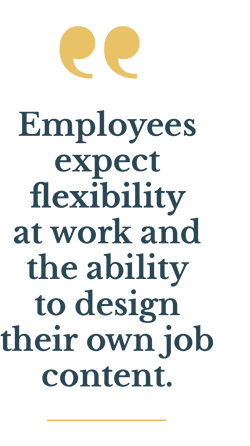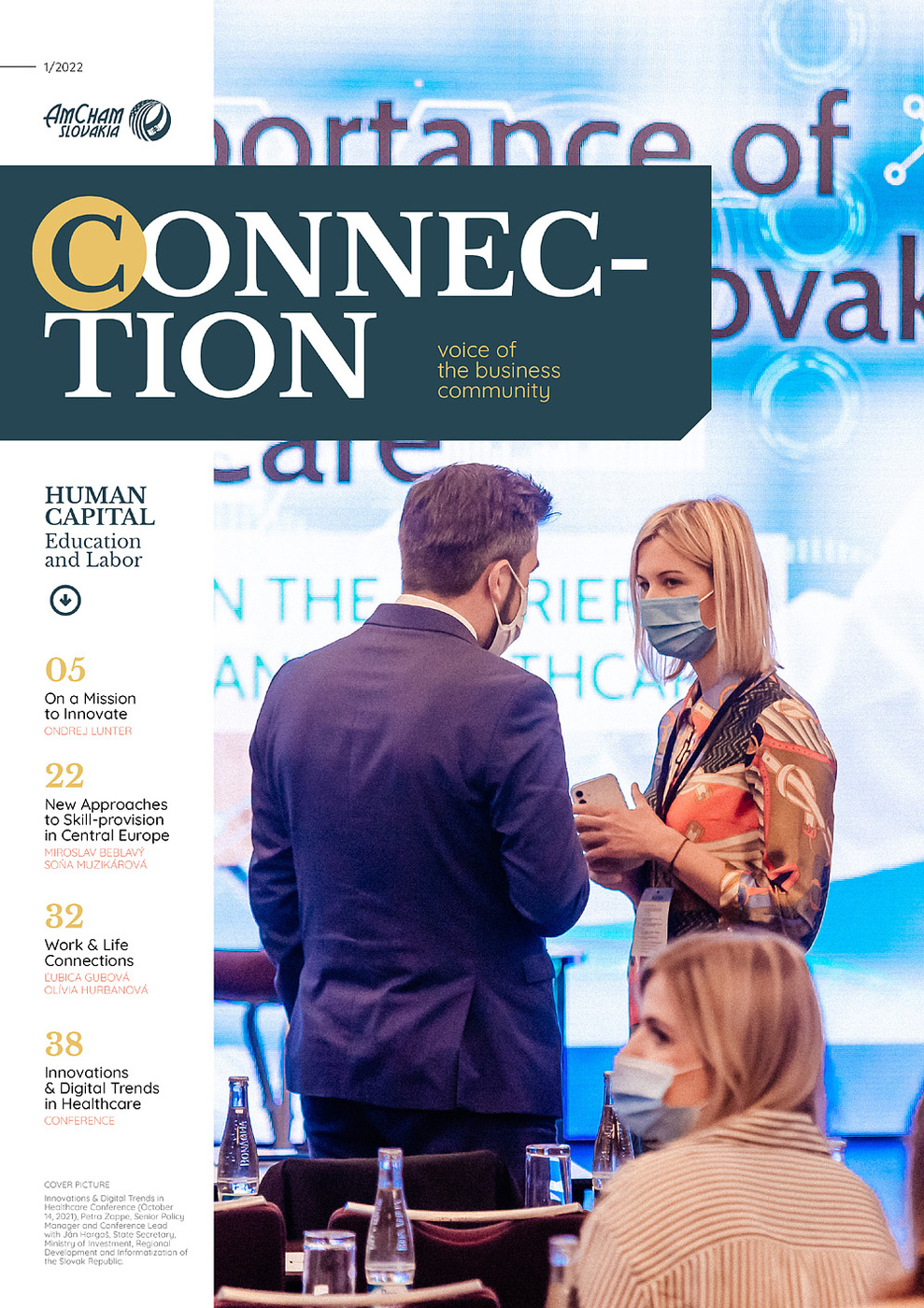Today’s work environment is characterized by robotization and automation, demographic shifts (e.g. more mature aged workers, millennials representing more than a half of the workforce, rise of the “gig” economy and high mobility of workers), challenges from young generation’s attitudes to work, fewer full time employees and the pressure to deliver solutions quickly.
Future of work and digitization
Manufacturing companies have embraced the changes automation brought to blue-collar workers. With digital transformation already underway, white-collar workers need to get ready for this evolution. The availability of big data and AI technologies will not only make about 30% of their jobs obsolete, but call for a clear strategy on a company’s digital culture - i.e. how people and machines interact and communicate together.
While the discussions about the impact of automation and digitization are on the agenda of board meetings, the effect the demographic shifts will have on the future of work is still seen by as more of a global problem rather than a local one by many Slovak companies. With the rising retirement age, companies will not only need to consider the working environment for older employees, but also train them to interact with virtual machines. New approaches to working models will be needed to make the economics for companies work, i.e. to employ older more expensive employees whose experience is needed.
 The young generation on the other end expects to work with DIY (Do It Yourself) technologies and have access to several sources of information but is not at ease with interpersonal communication and prefers constant but virtual feedback. The biggest challenges for the HR department will be how to align the communication between these two groups of employees, and help older employees to adapt to the constantly changing working environment.
The young generation on the other end expects to work with DIY (Do It Yourself) technologies and have access to several sources of information but is not at ease with interpersonal communication and prefers constant but virtual feedback. The biggest challenges for the HR department will be how to align the communication between these two groups of employees, and help older employees to adapt to the constantly changing working environment.
Talent management
We are seeing an increase in contracting arrangements and part-time workers as an alternative to standard fixed employment contracts. Employees expect flexibility at work and the ability to design their own job content. Looking into the near future, including freelancers in the core teams will become daily practice. The dilemma that will have to be solved by the HR teams is who “manages” the talent - is it the company or the workers themselves? The future talent management model should then respond to this new set-up also in terms of who will provide support to these talents, in development, training and growth, but also in topics as data protection and legal matters administration.
Technology related training and career paths are offered by many companies as part of the standard curriculum already. The future challenge for the HR teams is how to identify and develop the soft-behavior skills like flexibility, agility, passion for work and entrepreneurship. These skills are often discussed at recruitment interviews, however the cultures existing in the companies usually don’t accept such behaviors - teams see new joiners as a threat and processes and KPIs to evaluate performance of behaviors have not been implemented yet. The trend to encourage such behaviors, cultivate an agile mindset, and to face and learn from the unknown, will remain. To make the best use of it, companies need to address the challenge in making it part of their DNA, culture and daily actions.
Compensation and benefits
The COVID-19 pandemic restrictions have no doubt blurred the lines between private time and work. The remuneration systems in companies have to be adapted to new expectations employees have around flexibility in the way of working that will give them space to pursue their hobbies and interests. While the base salary remains important as an element of safety, lifestyle benefits are clearly becoming more popular. Working from home, flexible working hours, and short-term mobility within the organization, when designed correctly as lifestyle incentives, satisfy employees’ individual preferences.
As much as flexible working arrangements are the clear trend for the upcoming years, the “standard” employment contract provides a high level of safety and the feeling of being part of the company spirit. It thus has a stable place in the employee contracting portfolios.
Speaking about compensation and benefits it is important not to forget about the ethical aspect. The young generation requires clear and fair reward schemes that are openly communicated. This is a huge shift for the HR teams which have been historically set to treat the incentives-related communication as absolutely confidential.
Another clear trend in this area that supports teamwork is the increased importance of reward for positive behaviors, such as effective teamwork, and sharing of information. Measuring and rewarding the right behaviors as part of the regular evaluation circle helps to communicate the company values and to avoid non-compliant practices aimed to achieve high cash benefits.
The question mark is about the future role of bonuses, being one element of the remuneration packages. We have seen a lot of new legislation imposing regulation on incentive arrangements to avoid excessive risk taking in the past ten years. Considering the preferences of workers for lifestyle benefits over financial incentives, the relevance of bonuses in some industries in the future is uncertain.
To sum up, the focus of HR in the near term should be on:
- Introducing development programs for employees that focus on teamwork, project management, creative thinking, and agility. Adjusting such programs to address the different needs of the young versus the older generation.
- Designing flexible career models to attract and retain young talents. Structuring remuneration packages to ensure equal performance reward.
- Getting ready for lifestyle incentives and also start measuring performance based on behavior related criteria.
Dagmar Haklová, Partner, PwC Slovensko



Follow us